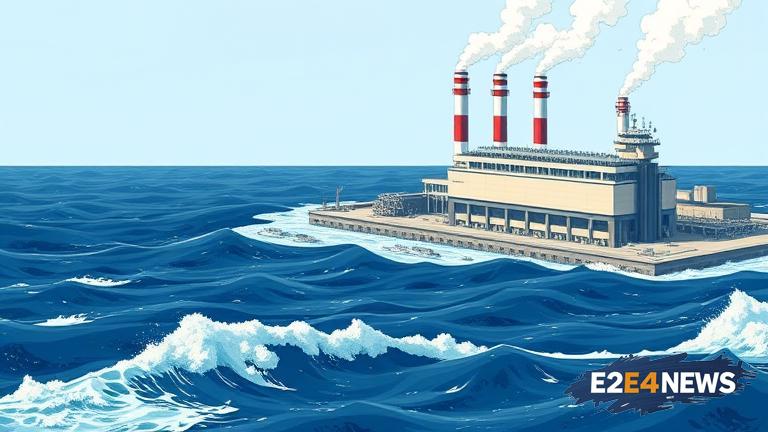The Japanese government has confirmed that it will proceed with the release of treated water from the Fukushima Daiichi nuclear power plant into the ocean. The decision has been met with opposition from local residents, fishermen, and environmental groups, who are concerned about the potential risks to human health and the environment. The Fukushima Daiichi nuclear power plant was damaged in a tsunami in 2011, resulting in the release of large quantities of radioactive materials into the environment. Since then, the plant’s operator, Tokyo Electric Power Company (TEPCO), has been struggling to manage the buildup of contaminated water. The treated water, which has been filtered to remove most radioactive isotopes, is currently stored in tanks at the plant. However, the storage capacity is expected to be reached by 2023, and the government has decided that releasing the water into the ocean is the most viable option. The release is expected to take place over a period of several years, with the treated water being diluted with seawater to reduce its radioactivity. The government has assured that the release will be done in a safe and controlled manner, with monitoring and testing to ensure that the water meets international safety standards. Despite these assurances, many are concerned about the potential impacts on the environment and human health. The release of radioactive materials into the ocean could have long-term effects on marine ecosystems and potentially contaminate the food chain. Local fishermen are also worried about the potential impacts on their livelihoods, as the release could affect the reputation of their catch. The decision has been criticized by neighboring countries, including China and South Korea, which have expressed concerns about the potential risks to their own environments and citizens. The Japanese government has defended its decision, stating that the release is necessary to facilitate the decommissioning of the plant and to prevent further accidents. The International Atomic Energy Agency (IAEA) has also endorsed the plan, stating that it is in line with international best practices. However, many experts and activists argue that more needs to be done to ensure the safe and responsible management of the contaminated water. The controversy surrounding the release has highlighted the ongoing challenges and complexities of managing the aftermath of the Fukushima nuclear disaster. The incident has had a profound impact on Japan’s energy policy, with the country shifting away from nuclear power and towards renewable energy sources. The release of treated water from the Fukushima Daiichi nuclear power plant is a significant development in the ongoing saga, and its impacts will be closely watched by the international community. The Japanese government must ensure that the release is done in a transparent and safe manner, with adequate monitoring and testing to mitigate any potential risks. The decision has also sparked a wider debate about the role of nuclear power in Japan’s energy mix, with many calling for a complete phase-out of nuclear power. As the country continues to grapple with the legacy of the Fukushima disaster, it is clear that the release of treated water from the plant is just one part of a much larger and more complex issue. The government must prioritize transparency, safety, and environmental responsibility as it navigates this challenging situation. The release of treated water from the Fukushima Daiichi nuclear power plant is a critical issue that requires careful consideration and management. The international community will be watching closely to ensure that the release is done in a responsible and safe manner. The incident has significant implications for the environment, human health, and the future of nuclear power in Japan. The Japanese government must take a proactive and transparent approach to managing the situation, with a focus on safety, environmental responsibility, and accountability. The release of treated water from the Fukushima Daiichi nuclear power plant is a complex and contentious issue that requires careful consideration and management. The government must prioritize the safety and well-being of its citizens, as well as the protection of the environment, as it navigates this challenging situation.
